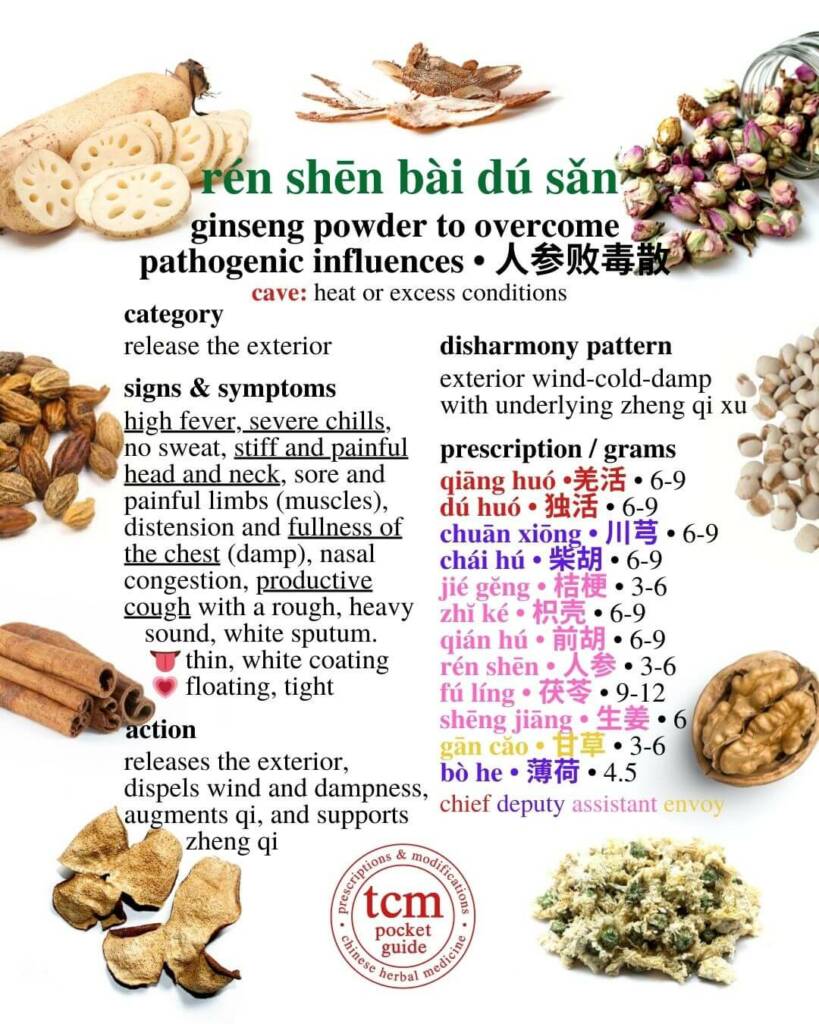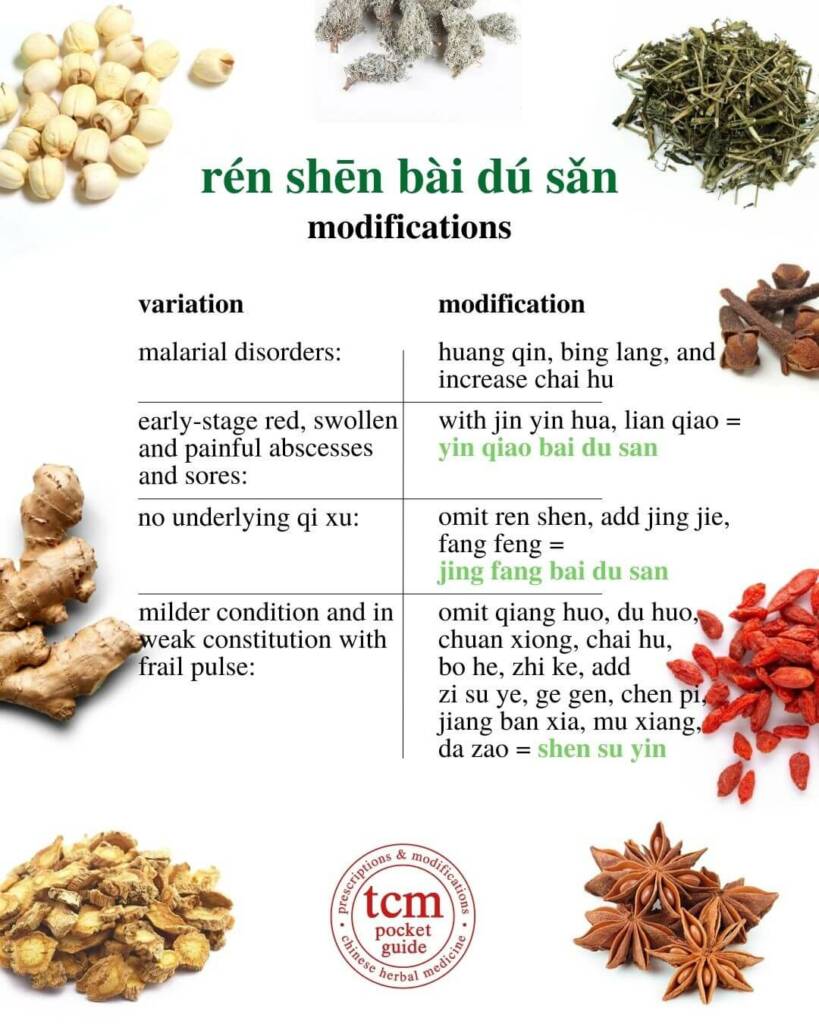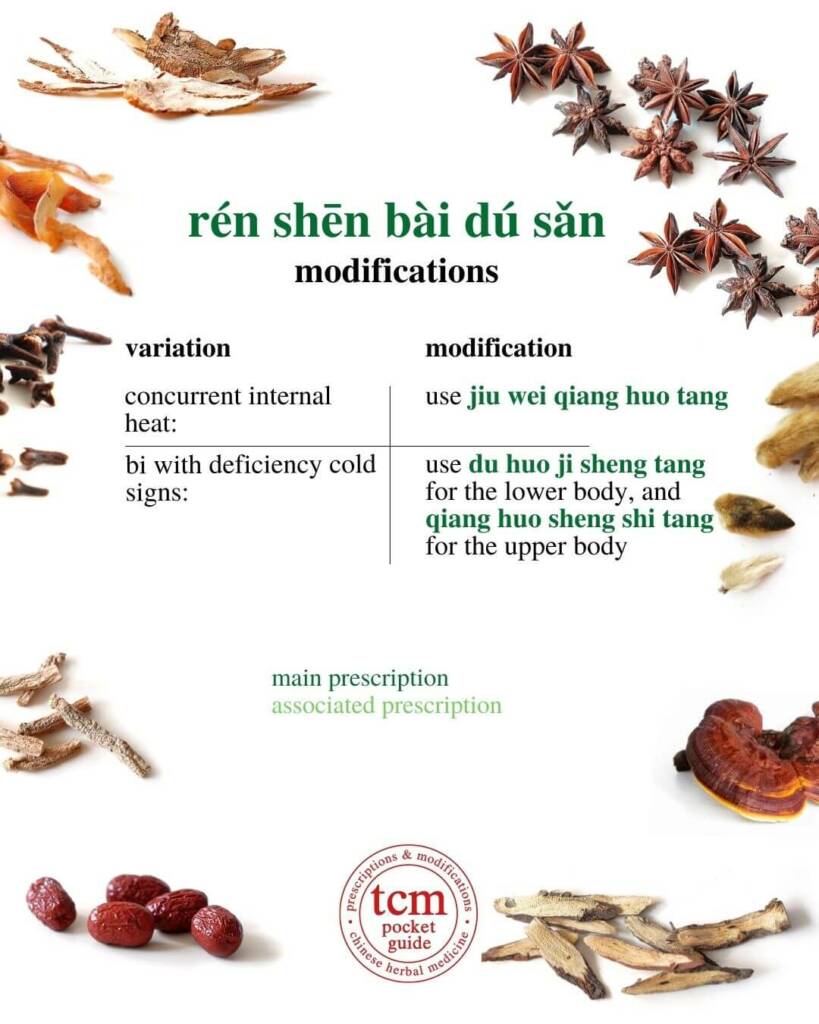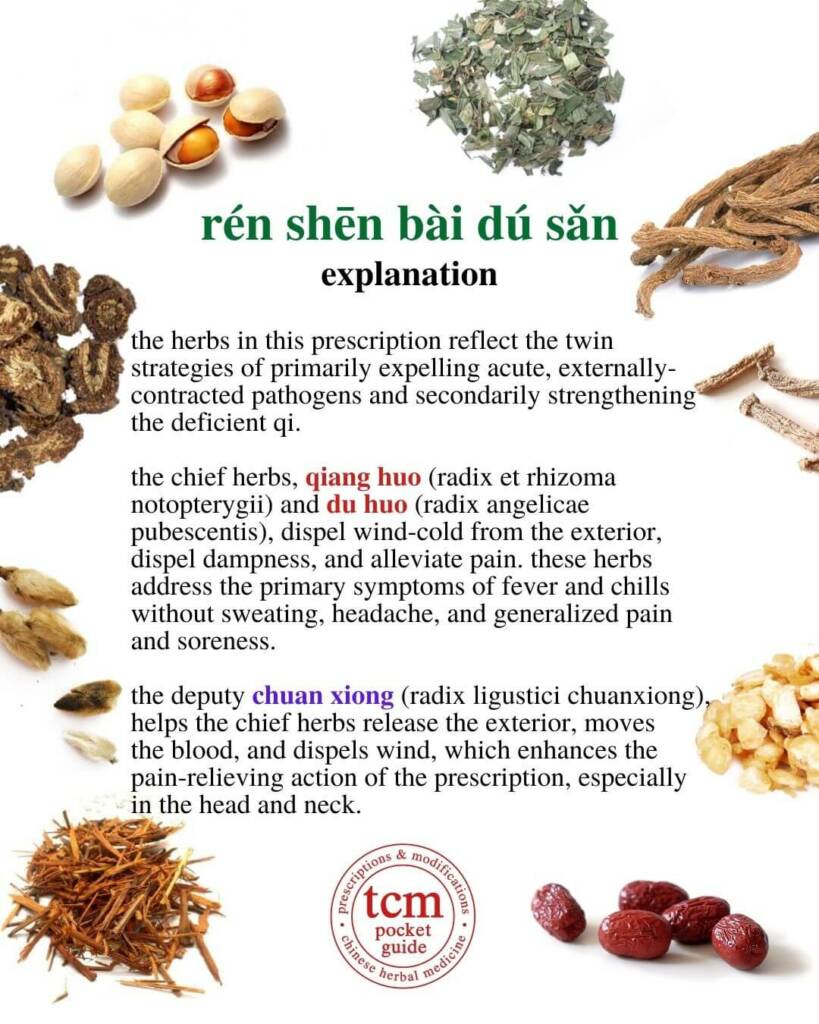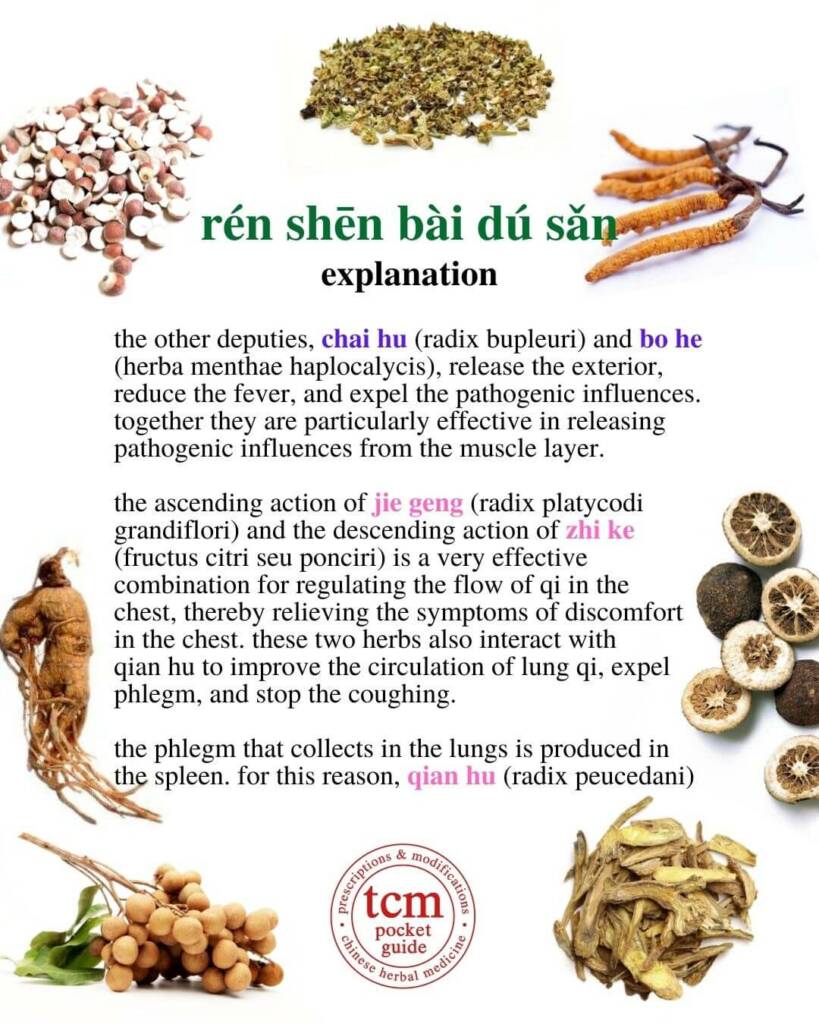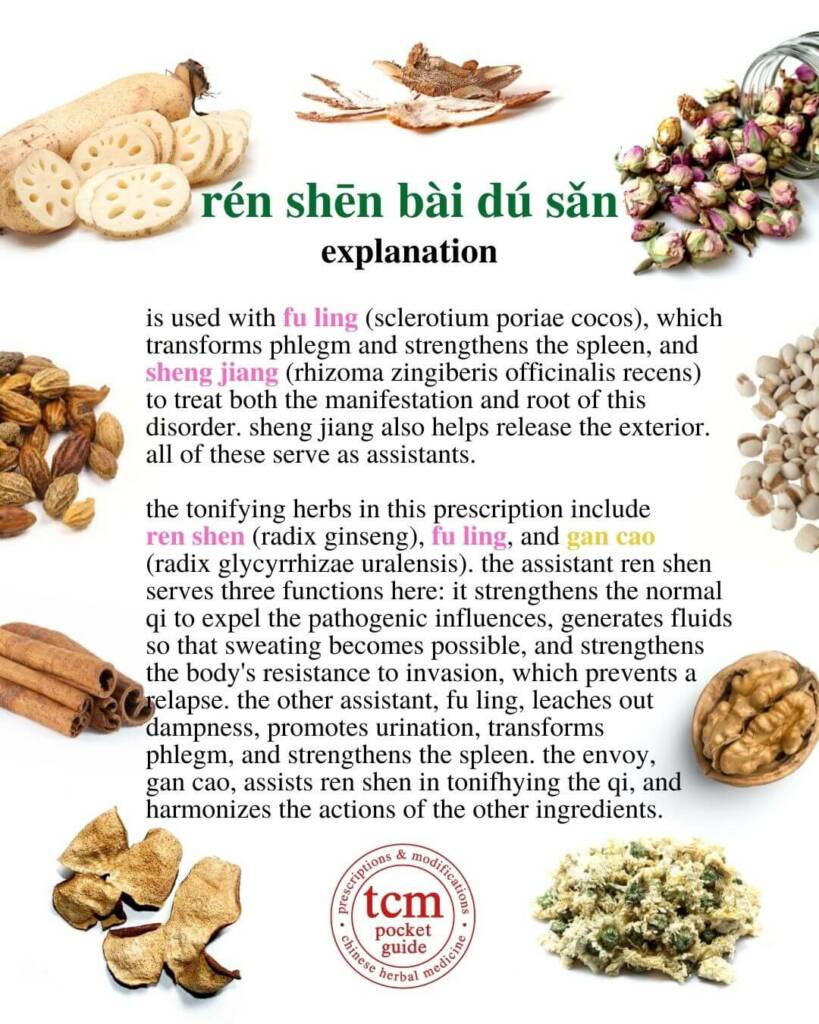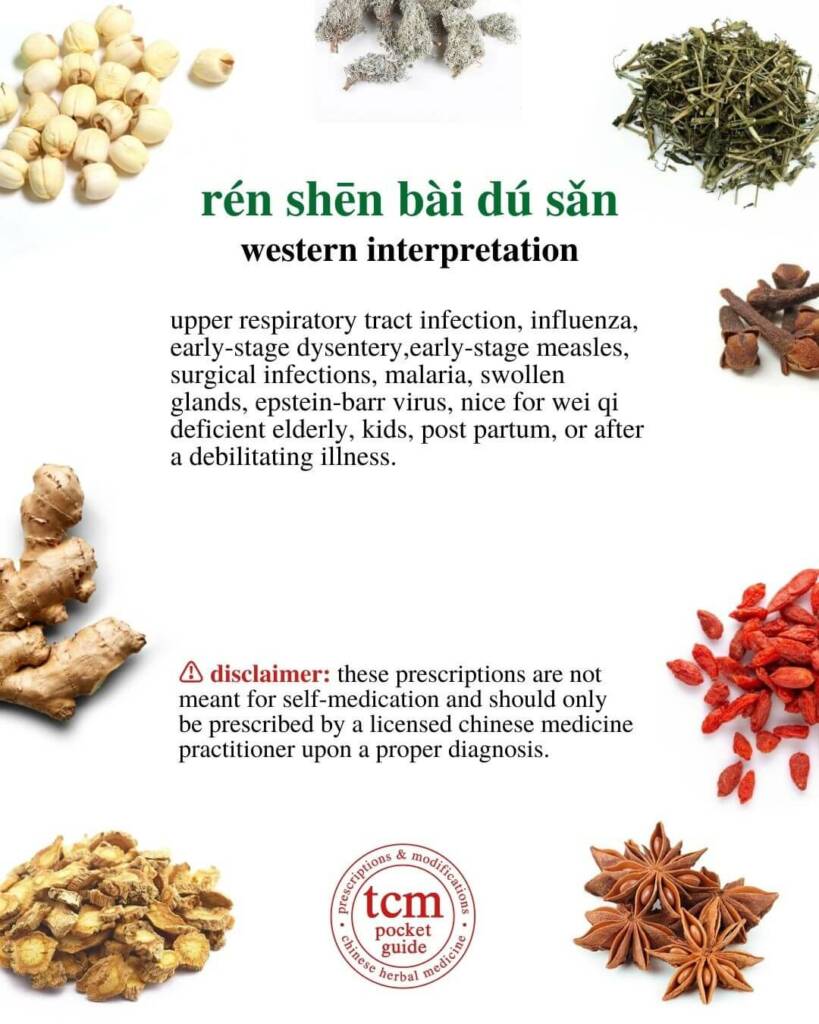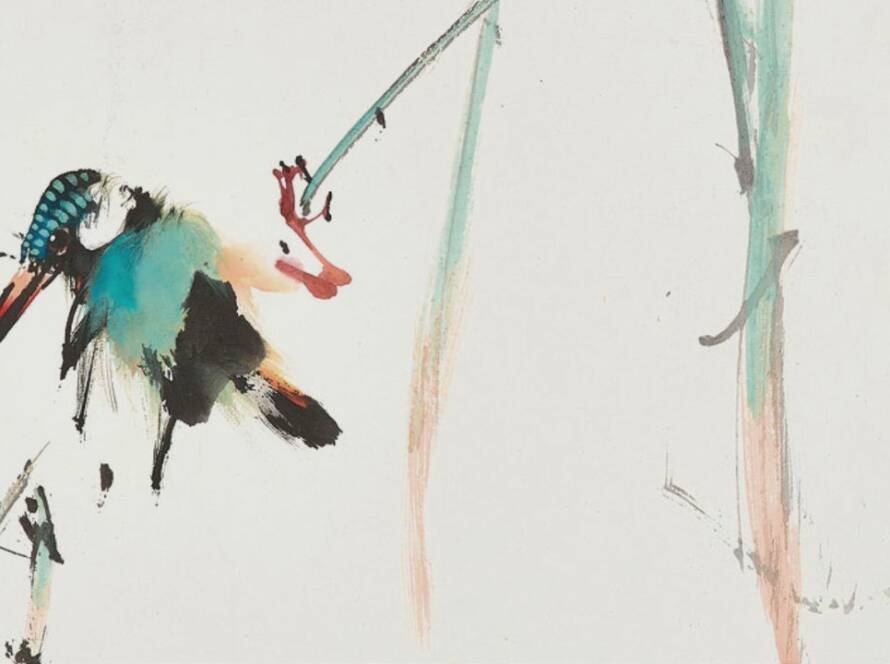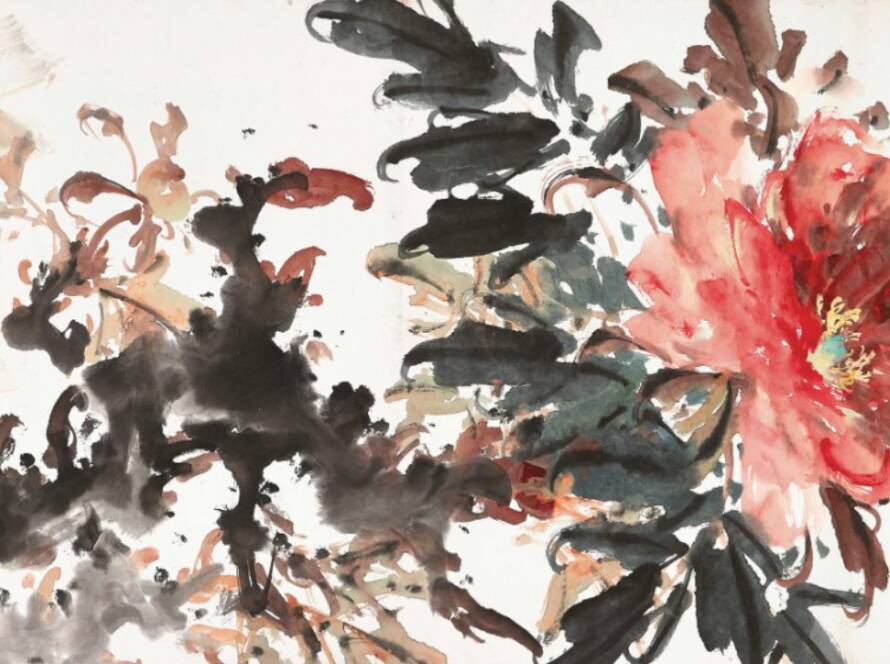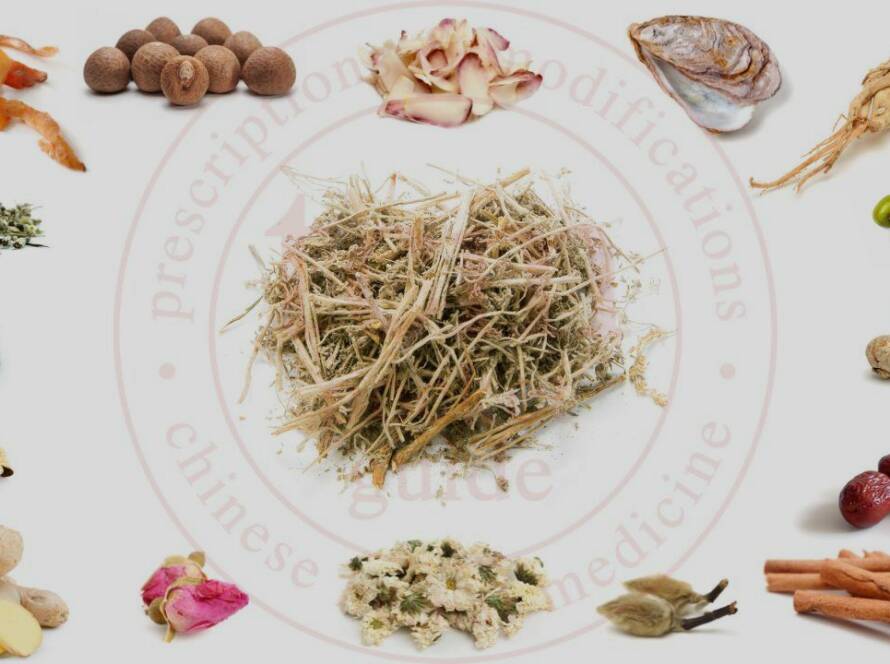rén shēn bài dú sǎn is used for patterns with
exterior wind-cold-damp with underlying zheng qi xu, wind-cold-damp bi syndrome.
symptoms indicating the use of rén shēn bài dú sǎn
high fever with severe chills and shivering, aversion to cold, pain worse at night, soreness and pain of the extremities, nasal congestion with sonorous breathing, stuffy nose, pain and stiffness of the head and neck, focal distention and fullness of the chest and diaphragm, productive cough, numbness and heaviness in the limbs, body aches, cold joints, heaviness in the joints, pain worse with cold and better with warmth, pain worse with wind and dampness, stabbing pain, muscle weakness, pain alleviated by movement, slight muscle edema, headache, dizziness.
western interpretation of rén shēn bài dú sǎn
upper respiratory, tract infection, influenza, early-stage dysentery, early-stage measles, surgical infections, malaria, swollen glands, epstein-barr virus, nice for wei qi deficient elderly and kids.
explanation of the mechanism
this is externally-contracted wind-cold-dampness battling the body’s deficient normal qi (zheng qi), which is unable to expel the pathogenic influences. this produces a high fever, severe chills with shivering, an absence of sweating, and pain and stiffness of the head and neck.
lingering dampness causes focal distention and fullness in the chest. the deficiency of qi allows dampness to penetrate rather quickly, producing a greasy, white tongue coating. (if the qi were strong, the tongue coating would remain thin and white.)
the attack of wind-cold on the lungs disrupts the circulation of qi, causing nasal congestion, sonorous breathing, and a productive cough.
the presence of wind, cold, and dampness at the level of the muscles produces generalized soreness and pain and a floating pulse. the floating, soggy quality of the pulse reflects the deficiency of qi which is the predominant aspect of this disorder.
(bensky & barolet)

created with love in switzerland 🇨🇭
feel free to share this content:


